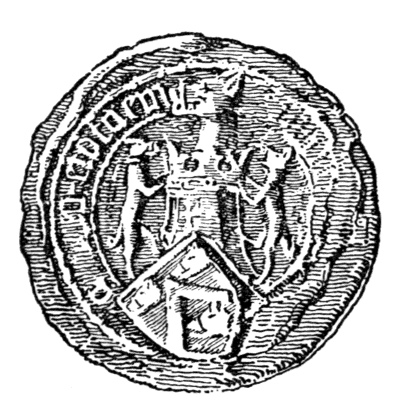|
Swinton (surname)
Swinton is a surname in both Scotland and England (see Clan Swinton). Notable people with this surname include the following: *Archibald Swinton (1731-1804), Scottish Captain of the East India Company, head of Mughal Emperor Shah Alam II's mission to George III of Britain in 1766 *Ernest Dunlop Swinton (1868–1951), British Army officer and writer *Sir John Swinton, 14th of that Ilk (14th century), English soldier of Scottish origin, retainer of John of Gaunt (erroneously called Thomas in one major source) *John Swinton (1703–1777), British writer, academic, FRS, Church of England clergyman and orientalist *John Swinton (journalist) (1830–1901), American editorial writer at ''The New York Times'' and ''The New York Sun'' *John Swinton of Kimmerghame (born 1925), general (father of Tilda), former Major General of the British Army and former Lord Lieutenant of Berwickshire *Samuel Swinton (ca 1729–1799), Scottish captain of the Royal Navy. The character ''The Scarlet Pimpernel'' ... [...More Info...] [...Related Items...] OR: [Wikipedia] [Google] [Baidu] |
Clan Swinton
Clan Swinton is a Scottish clan of the Scottish Lowlands.Way, George and Squire, Romily. (1994). ''Collins Scottish Clan & Family Encyclopedia''. (Foreword by The Rt Hon. The Earl of Elgin KT, Convenor, The Standing Council of Scottish Chiefs). pp. 334 - 335. History Origins of the clan The Swinton chiefs are likely to have been of Anglo-Saxon origin, possibly descended from the prominent nobles of the kingdom of Northumbria. The kingdom of Northumberland straddled the modern day border between Scotland and England. According to tradition the name was acquired for their bravery in clearing the country of wild boar, with the family arms alluding to this legend. However, the name is more likely to have been of territorial origin: the village of Swinewood in the county of Berwickshire was granted by Edgar, King of Scotland, son of Malcolm III of Scotland to Coldingham Priory in 1098 following the Norman Conquest of England to the south . In around 1136/7, Ernulf de Swinton rece ... [...More Info...] [...Related Items...] OR: [Wikipedia] [Google] [Baidu] |
Archibald Swinton
Archibald is a masculine given name, composed of the Germanic elements '' erchan'' (with an original meaning of "genuine" or "precious") and ''bald'' meaning "bold". Medieval forms include Old High German and Anglo-Saxon . Erkanbald, bishop of Strasbourg (d. 991) was also rendered in Old French. There is also a secondary association of its first element with the Greek prefix '' archi-'' meaning "chief, master", to Norman England in the high medieval period. The form ''Archibald'' became particularly popular among Scottish nobility in the later medieval to early modern periods, whence usage as a surname is derived by the 18th century, found especially in Scotland and later Nova Scotia. Given name English diminutives or hypocorisms include ''Arch, Archy, Archie, and Baldie (nickname)''. Variants include French ''Archambault, Archaimbaud, Archenbaud, Archimbaud'', Italian ''Archimboldo, Arcimbaldo, Arcimboldo'', Portuguese '' Arquibaldo, Arquimbaldo'' and Spanish ''Archibaldo, ... [...More Info...] [...Related Items...] OR: [Wikipedia] [Google] [Baidu] |
Ernest Dunlop Swinton
Major-General Sir Ernest Dunlop Swinton, (21 October 1868 – 15 January 1951) was a British Army officer who played a part in the development and adoption of the tank during the First World War. He was also a war correspondent and author of several short stories on military themes. He is credited, along with fellow officer Lieutenant-Colonel Walter Dally Jones, with having initiated the use of the word "tank" as a code-name for the first tracked, armoured fighting vehicles. Early life and career Swinton was born in Bangalore, India, in 1868. His father was a judge with the Madras Civil Service. The family returned to England in 1874, and Swinton was educated at University College School, Rugby School, Cheltenham College, Blackheath Proprietary School, and the Royal Military Academy, Woolwich. He was commissioned a second lieutenant in the Corps of Royal Engineers on 17 February 1888. Serving in India, he was promoted to lieutenant on 17 February 1891, and to captain on 17 Febru ... [...More Info...] [...Related Items...] OR: [Wikipedia] [Google] [Baidu] |
Sir John Swinton, 14th Of That Ilk
Sir John Swinton, 14th of that Ilk, great-grandson of Henry de Swinton who appears on the Ragman Roll, was a distinguished soldier and statesman in the reigns of Robert II of Scotland and Robert III of Scotland. (See Clan Swinton) France, Hundred Years War He was one of the greatest fighters of his time. In youth, the Borders being too quiet for him, he had signed on with John of Gaunt, 1st Duke of Lancaster. He made an interesting agreement with John of Gaunt which included the following among other terms: *a) Swinton was not to be required to fight against his own country. *b) He was to be given double pay, and free transport for himself, his horses and his men. *c) The Duke was to replace any of his horses that were lost or taken. In return, he was to have one-third share in the ransom of Swinton’s future prisoners and in his other "profits of war". This unusual "contract" shows that Sir John must already have acquired a solid reputation as a fighter, perhaps in Prussia ... [...More Info...] [...Related Items...] OR: [Wikipedia] [Google] [Baidu] |
John Swinton (1703–1777)
John Swinton (1703–1777) was a British writer, academic, Fellow of the Royal Society, Church of England clergyman and orientalist. In 1731 he was a fellow of Wadham College, Oxford, but migrated to Christ Church in 1745. He contributed to George Sale's ''Universal History.'' Swinton also contributed articles on the transcription of the 'Ruins of Palmyra'. Beginning in 1749, Swinton donated a number of Roman coins to the collection at Christ Church. From 1767 until the year of his death he was Keeper of the Archives at Oxford University. Oxford University Archives Life The son of John Swinton of Bexton in Cheshire, he was born in the county. He entered Wadham College, Oxford as a servitor, matriculat ...[...More Info...] [...Related Items...] OR: [Wikipedia] [Google] [Baidu] |
John Swinton (journalist)
John Swinton (1829–1901) was a Scottish-American journalist, newspaper publisher, and orator. Although he arguably gained his greatest influence as the chief editorial writer of ''The New York Times'' during the decade of the 1860s, Swinton is best remembered as the namesake of ''John Swinton's Paper'', one of the most prominent American labor newspapers of the 1880s. Swinton would also serve as chief editorialist of the ''New York Sun'' during two stints totaling more than a dozen years. Biography Early years Swinton was born in Saltoun, Scotland, on December 12, 1829.Sender Garlin, ''Three American Radicals: John Swinton, Charles P. Steinmetz, and William Dean Howells.'' Boulder, CO: Westview Press, 1991; pg. 4. Swinton's father emigrated to America when John was very young, becoming a pioneer settler in the state of Illinois. [...More Info...] [...Related Items...] OR: [Wikipedia] [Google] [Baidu] |
John Swinton Of Kimmerghame
Major-General Sir John Swinton of Kimmerghame, (21 April 1925 – 4 October 2018) was a British Army officer who served as Major-General commanding the Household Division and General Officer Commanding London District from 1976 until his retirement in 1979. He was the father of actress Tilda Swinton. Early life Swinton was the son of Brigadier Alan Henry Campbell Swinton of Kimmerghame, MC (born 15 March 1896) and wife, Mariora Beatrice Evelyn Rochfort Alers-Hankey (born 1900). A member of the Swinton family, his paternal grandfather was Scottish politician and officer-of-arms George Swinton. He was educated at Harrow School, London. Military career Swinton was commissioned into the Scots Guards on 24 March 1944, and was twice wounded towards the end of the Second World War.Thi ... [...More Info...] [...Related Items...] OR: [Wikipedia] [Google] [Baidu] |
Royal Navy
The Royal Navy (RN) is the United Kingdom's naval warfare force. Although warships were used by English and Scottish kings from the early medieval period, the first major maritime engagements were fought in the Hundred Years' War against France. The modern Royal Navy traces its origins to the early 16th century; the oldest of the UK's armed services, it is consequently known as the Senior Service. From the middle decades of the 17th century, and through the 18th century, the Royal Navy vied with the Dutch Navy and later with the French Navy for maritime supremacy. From the mid 18th century, it was the world's most powerful navy until the Second World War. The Royal Navy played a key part in establishing and defending the British Empire, and four Imperial fortress colonies and a string of imperial bases and coaling stations secured the Royal Navy's ability to assert naval superiority globally. Owing to this historical prominence, it is common, even among non-Britons, to ref ... [...More Info...] [...Related Items...] OR: [Wikipedia] [Google] [Baidu] |
The Scarlet Pimpernel
''The Scarlet Pimpernel'' is the first novel in a series of historical fiction by Baroness Orczy, published in 1905. It was written after her stage play of the same title (co-authored with Montague Barstow) enjoyed a long run in London, having opened in Nottingham in 1903. The novel is set during the Reign of Terror following the start of the French Revolution. The title is the ''nom de guerre'' of its hero and protagonist, a chivalrous Englishman who rescues aristocrats before they are sent to the guillotine. Sir Percy Blakeney leads a double life: apparently nothing more than a wealthy fop, but in reality a formidable swordsman and a quick-thinking master of disguise and escape artist. The band of gentlemen who assist him are the only ones who know of his secret identity. He is known by his symbol, a simple flower, the scarlet pimpernel (''Anagallis arvensis''). Opening at the New Theatre in London's West End on 5 January 1905, the play became a favourite of British audienc ... [...More Info...] [...Related Items...] OR: [Wikipedia] [Google] [Baidu] |
Tilda Swinton
Katherine Matilda Swinton (born 5 November 1960) is a British actress. Known for her roles in independent films and blockbusters, she has received various accolades, including an Academy Award and a British Academy Film Award, in addition to nominations for three Golden Globe Awards and five Screen Actors Guild Awards. In 2020, ''The New York Times'' ranked her as one of the greatest actors of the 21st century. Swinton began her career by appearing in the experimental films ''Caravaggio'' (1986), '' The Last of England'' (1988), ''War Requiem'' (1989), and '' The Garden'' (1990). Swinton won the Volpi Cup for Best Actress at the Venice Film Festival for her portrayal of Isabella of France in ''Edward II'' (1991). She next starred in Sally Potter's ''Orlando'' (1992), for which she was nominated for the European Film Award for Best Actress. She was nominated for a Golden Globe Award for her performance in '' The Deep End'' (2001). That followed with appearances in ''Vanilla Sk ... [...More Info...] [...Related Items...] OR: [Wikipedia] [Google] [Baidu] |
William Elgin Swinton
Dr William Elgin Swinton FRSE Linnean Society, FLS (30 September 1900 in Kirkcaldy – 12 June 1994 in Toronto), was a Scottish paleontologist. Life William Swinton was born in Kirkcaldy in Fife, the son of William Wilson Swinton, a clerk, and Rachel Cargill; he had one sibling, his younger sister Mary. He received his secondary education in Dundee and Glenalmond College. From 1917, he studied Sciences at the University of Glasgow, graduating BSc in 1922. In 1920, he partook in an expedition to Spitsbergen. Between 1922 and 1924, he was an assistant at the geology department of the Natural History Museum, London, British Museum (Natural History) in London. Subsequently, Swinton was appointed as a curator of fossil amphibians, reptiles and birds. In 1933, he received his first doctorate (Ph.D) from the University of Glasgow. In 1932 he was elected a Fellow of the Royal Society of Edinburgh. His proposers were Douglas Alexander Allan, Robert Campbell, Herbert Harold Read and Th ... [...More Info...] [...Related Items...] OR: [Wikipedia] [Google] [Baidu] |
English-language Surnames
English is a West Germanic languages, West Germanic language of the Indo-European language family, with its earliest forms spoken by the inhabitants of early medieval England. It is named after the Angles, one of the ancient Germanic peoples that migrated to the island of Great Britain. Existing on a dialect continuum with Scots language, Scots, and then closest related to the Low German, Low Saxon and Frisian languages, English is Genetic relationship (linguistics), genealogically West Germanic language, West Germanic. However, its vocabulary is also distinctively influenced by Langues d'oïl, dialects of France (about List of English words of French origin, 29% of Modern English words) and Latin (also about 29%), plus some grammar and a small amount of core vocabulary influenced by Old Norse (a North Germanic language). Speakers of English are called Anglophones. The earliest forms of English, collectively known as Old English, evolved from a group of West Germanic (Ingvae ... [...More Info...] [...Related Items...] OR: [Wikipedia] [Google] [Baidu] |




